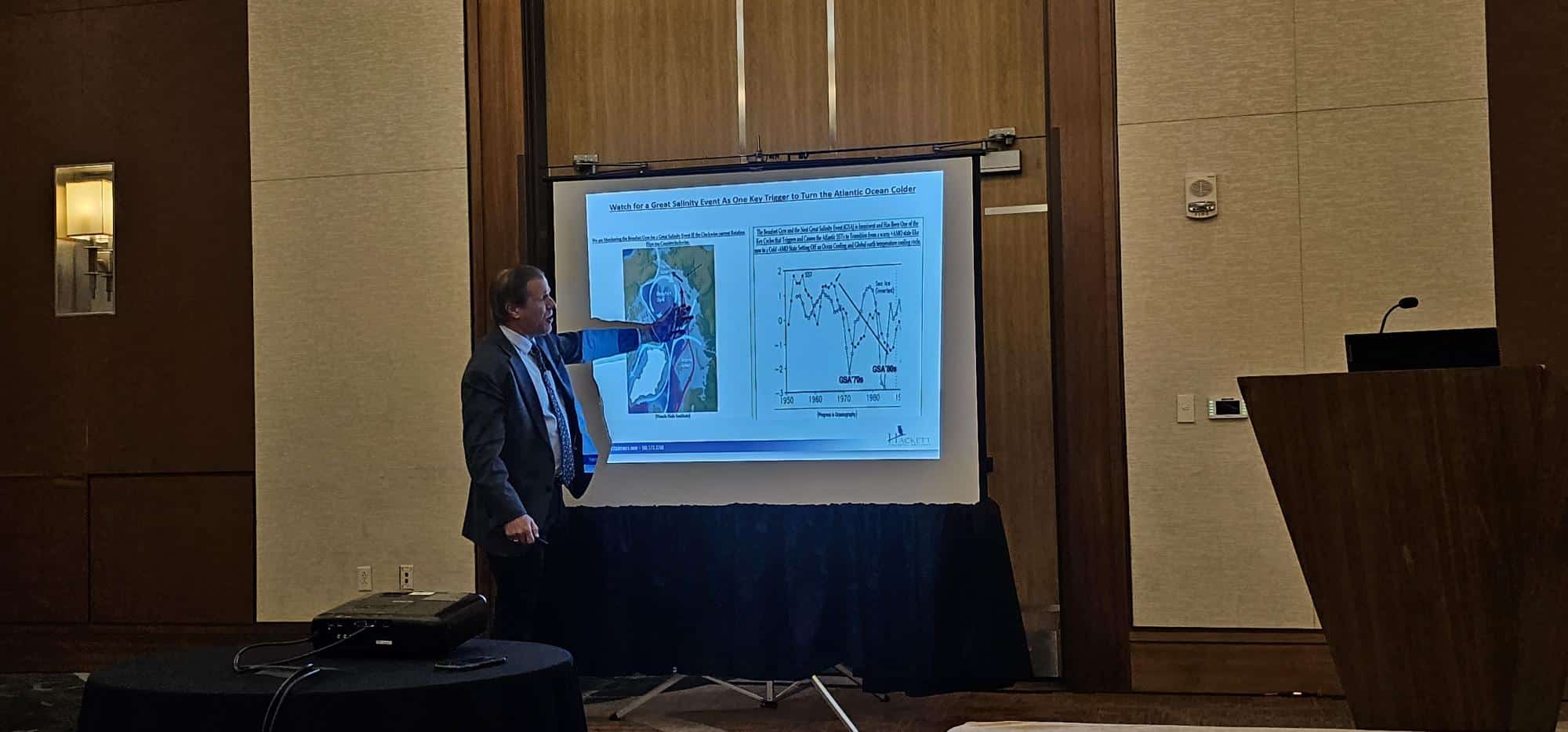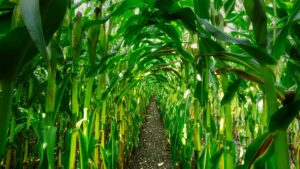One of the headline sessions during day three at IPSA centered around weather volatility. What a timely topic with the wind and snow swirling in the air across much of the United States during this week’s Arctic blast. Weather volatility significantly impacts the seed industry, influencing every stage from seed production to distribution.
“Weather is the flame,” said Shawn Hackett, speaking to a packed room of IPSA attendees. “Other factors either fan or dampen the flame. Weather volatility has been on an upswing and will be for at least another 10-15 years.”
Shawn Hackett, president of Hackett Financial Advisors Inc., is a weather trends/outlook and commodities expert who specializes in informing the agriculture industry about long term cycles and statistics relating to climate, currencies, geopolitics, and global capital flows with an emphasis on their impacts to agricultural production and prices.
He spoke about the impact and interactions of cyclical factors such as the U.S. dollar value, the war cycle, 35-year interest cycle and the cost of capital. These combined with climate cycles can create the perfect storm for agriculture.
“There’s no such thing as constant climate,” he said. “The climate is always changing.”
Fluctuating weather patterns, characterized by unpredictable rainfall, temperature shifts and extreme events like droughts and floods, directly affect seed quality and yield. As the seed industry well knows, excessive rainfall can lead to fungal diseases in crops, compromising seed quality, while drought conditions can severely reduce seed production. These inconsistencies challenge seed producers in planning and ensuring a consistent supply of high-quality seeds. Additionally, climate unpredictability necessitates continuous research and development of new seed varieties that are resilient to these changing conditions, adding to the operational costs and complexities of the seed industry.
Moreover, the unpredictability in weather patterns also affects the timing and success of planting seasons. Seeds developed for specific climate conditions may not perform optimally if those conditions change significantly, leading to crop failures or reduced yields. This uncertainty forces farmers and the seed industry to adapt quickly, often requiring investments in new seed varieties more frequently. The need for seeds that can withstand a broader range of conditions is growing, driving the industry towards more resilient and adaptable seed technologies. Consequently, the seed industry plays a critical role in global food security, facing the challenge of developing seeds that can thrive in increasingly unpredictable climates, while also meeting the demands of a growing population.
Hackett said his predictions about continued weather volatility may seem negative, but he encouraged the crowd to look at them in another way.
“Awareness provides opportunity to create positive actions (to prepare),” he said. “When there is greater price volatility there is always greater profitability on the farm if you are active in taking advantage of it. Weather is going to happen whether I talk about it or not. The positive message here is that this has happened before. It’s not like the world has never seen a Grand Solar Cycle before. It’s happened seven or eight times in the last 1,000 years. This is a common thing. It’s just not common for everyone in this room (because it only happens every 89-90 years).”













